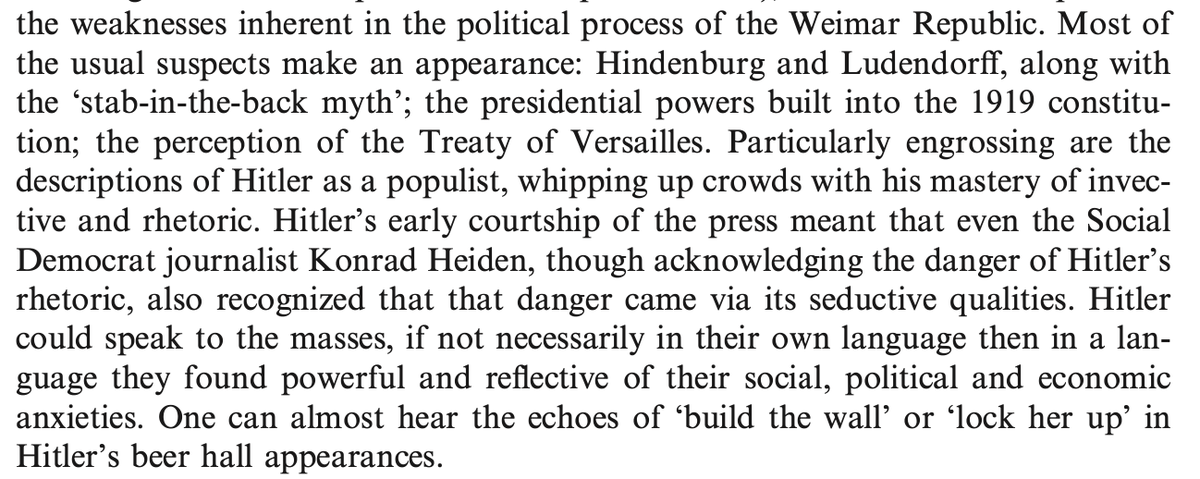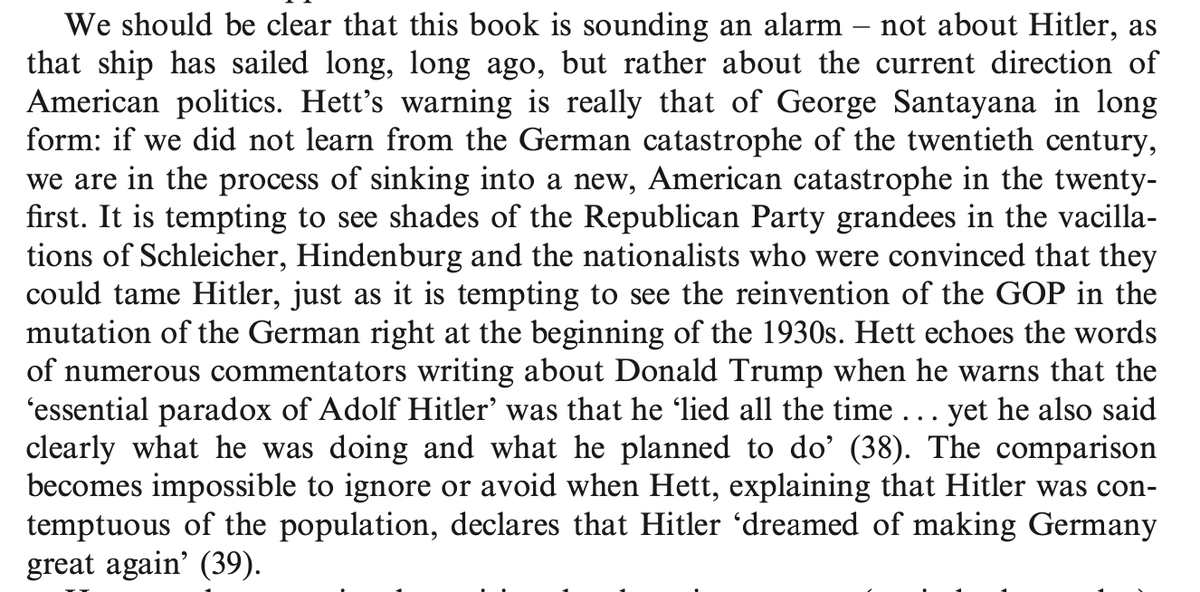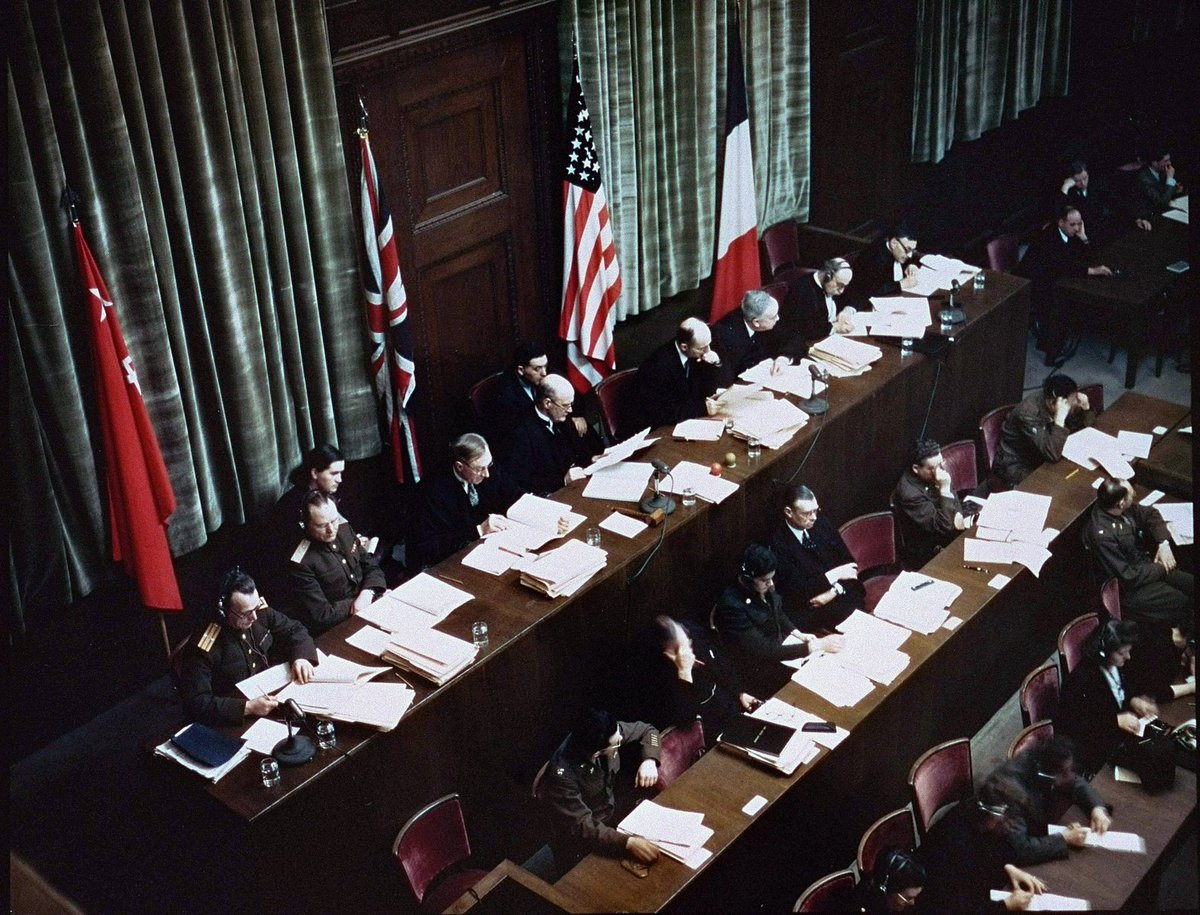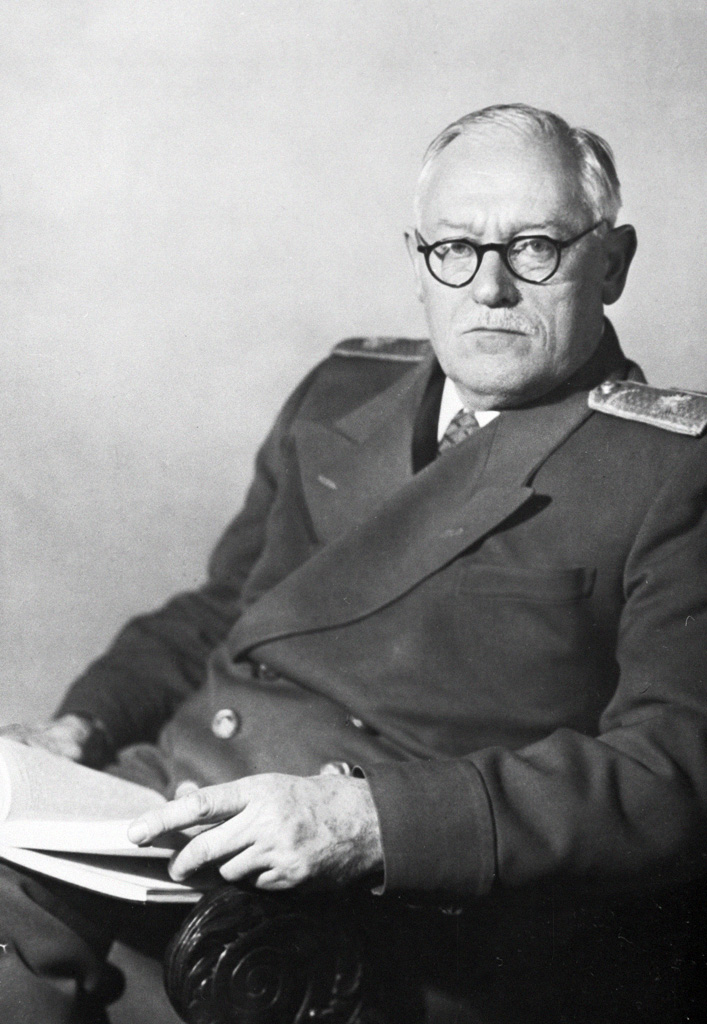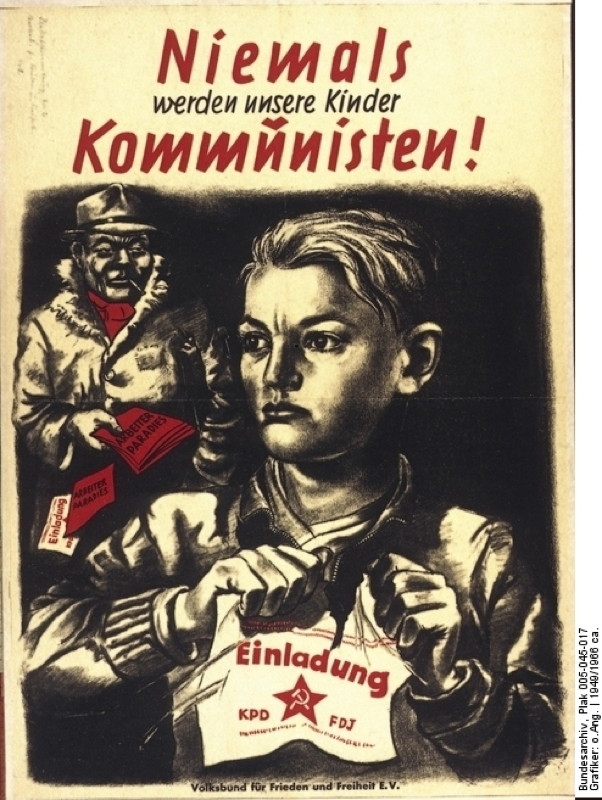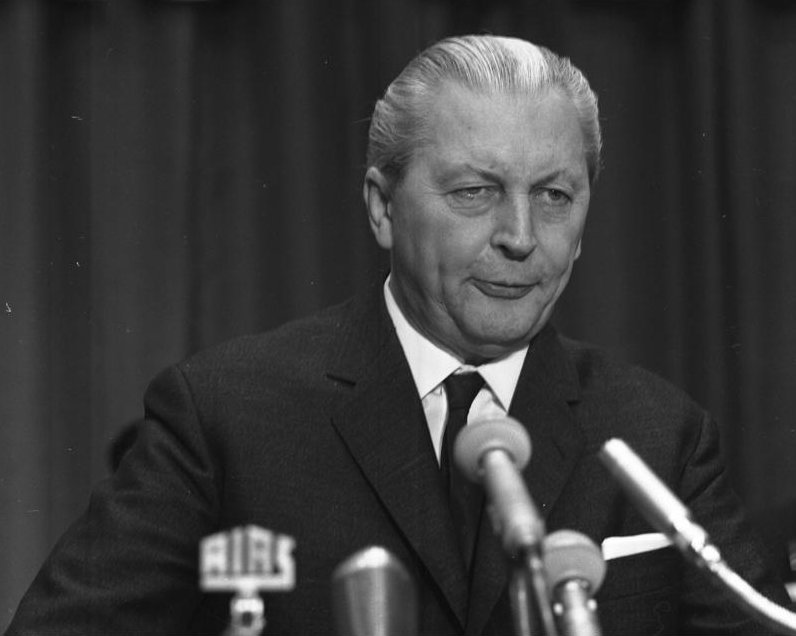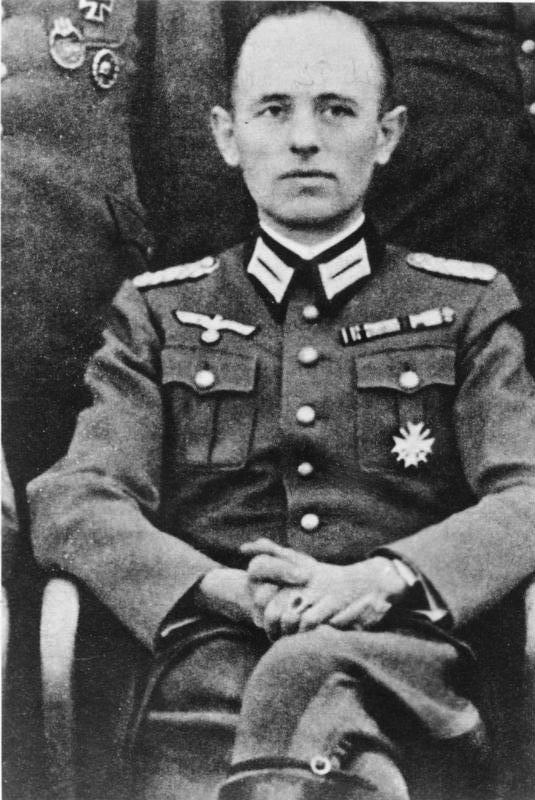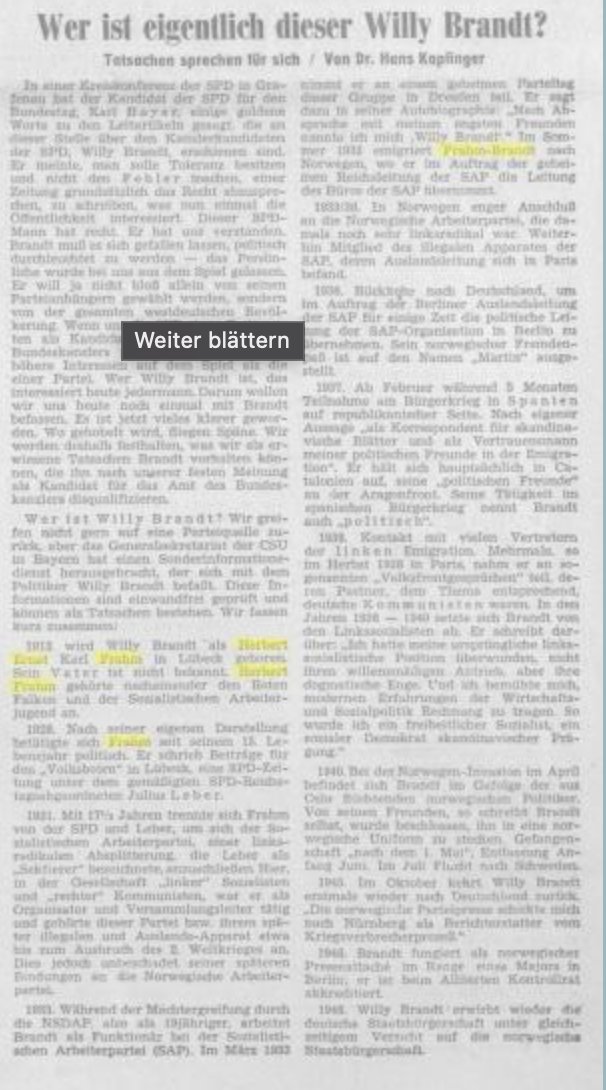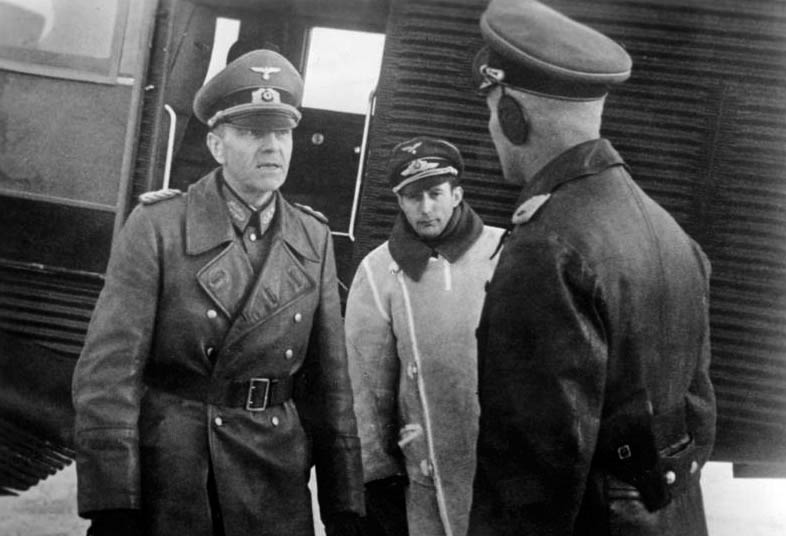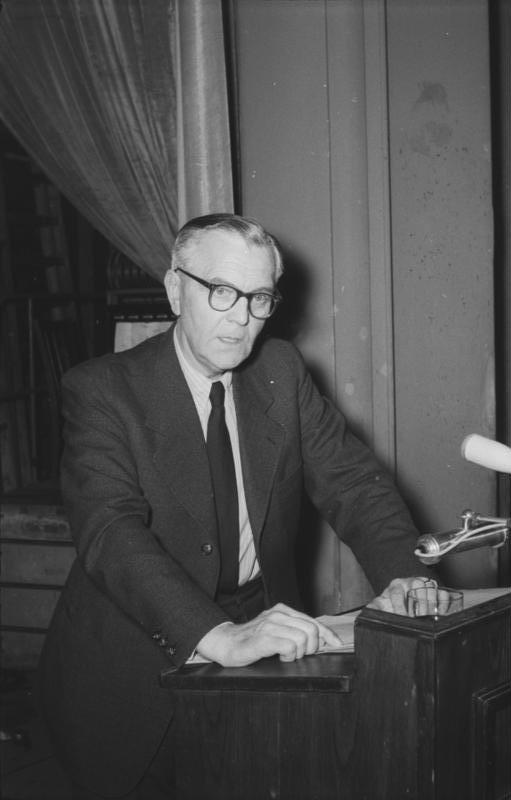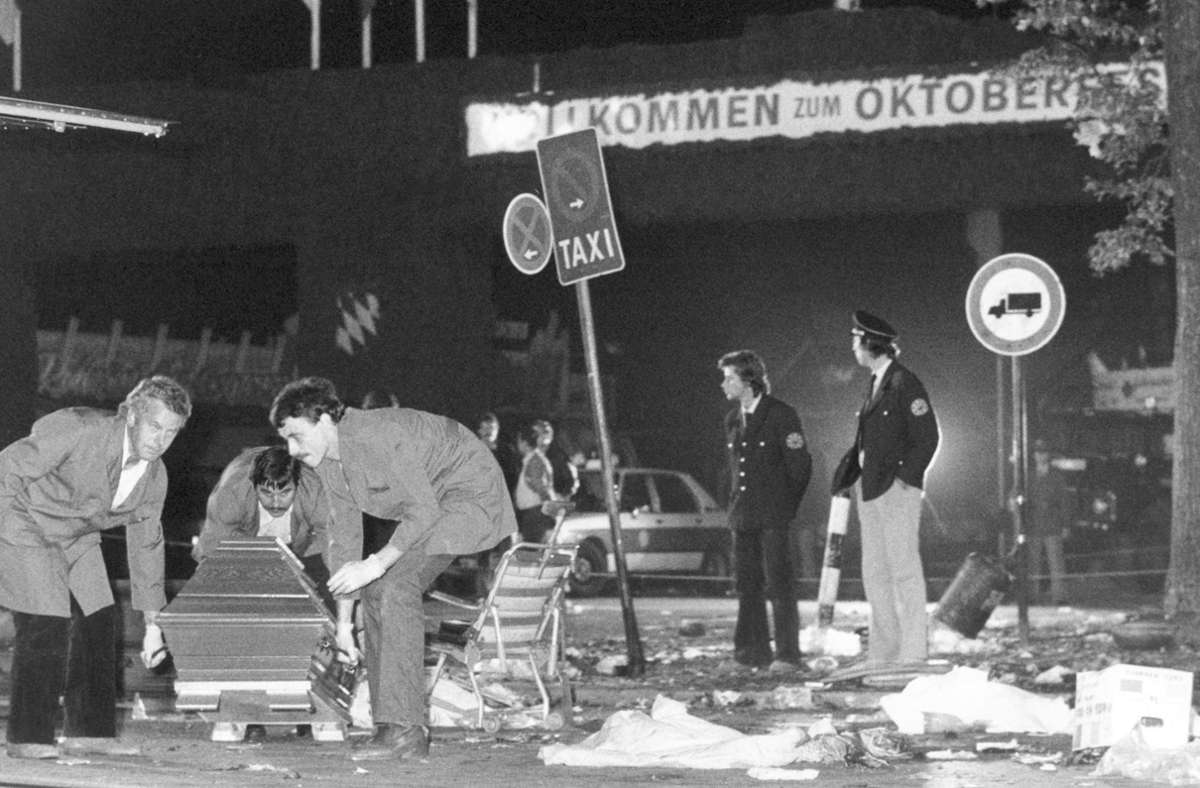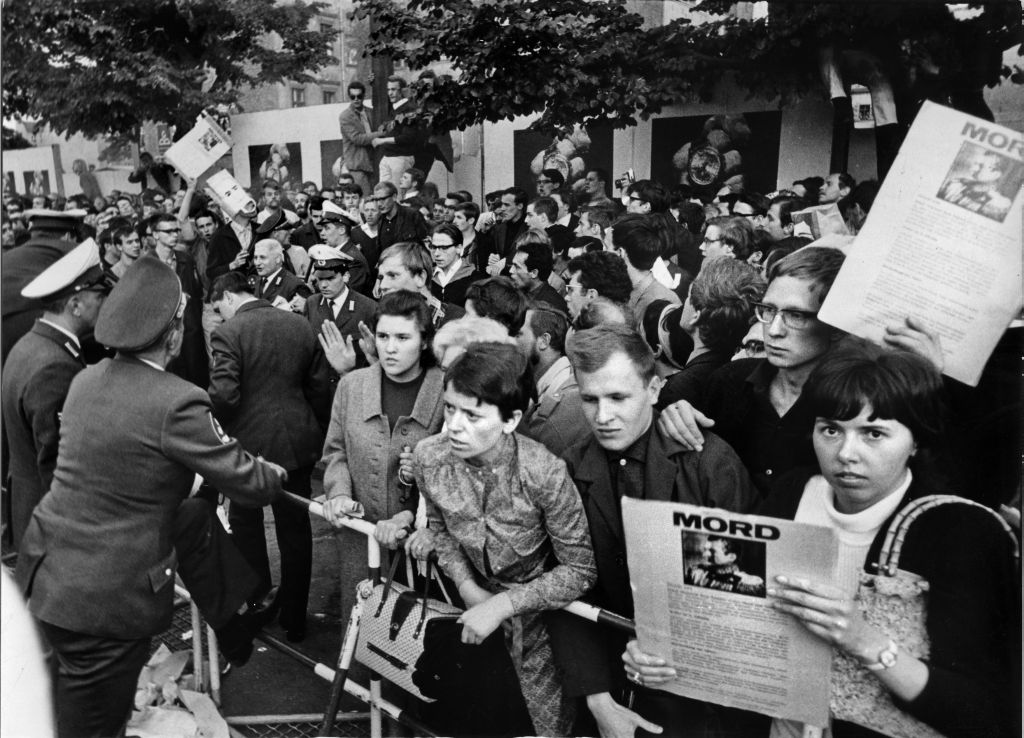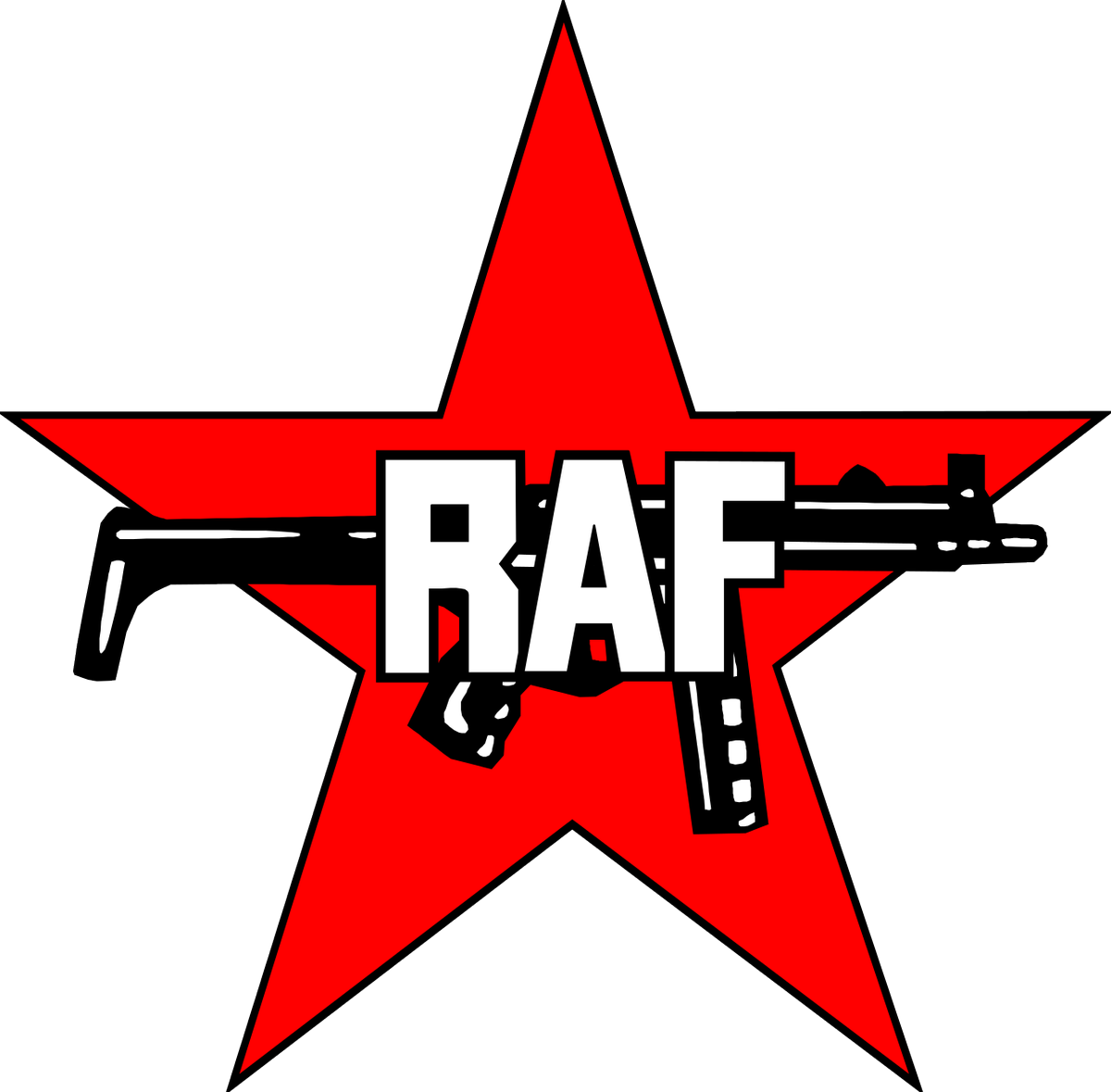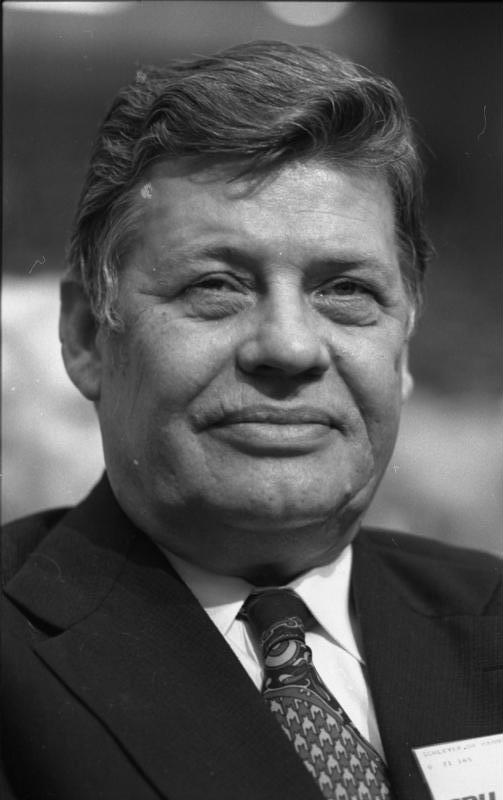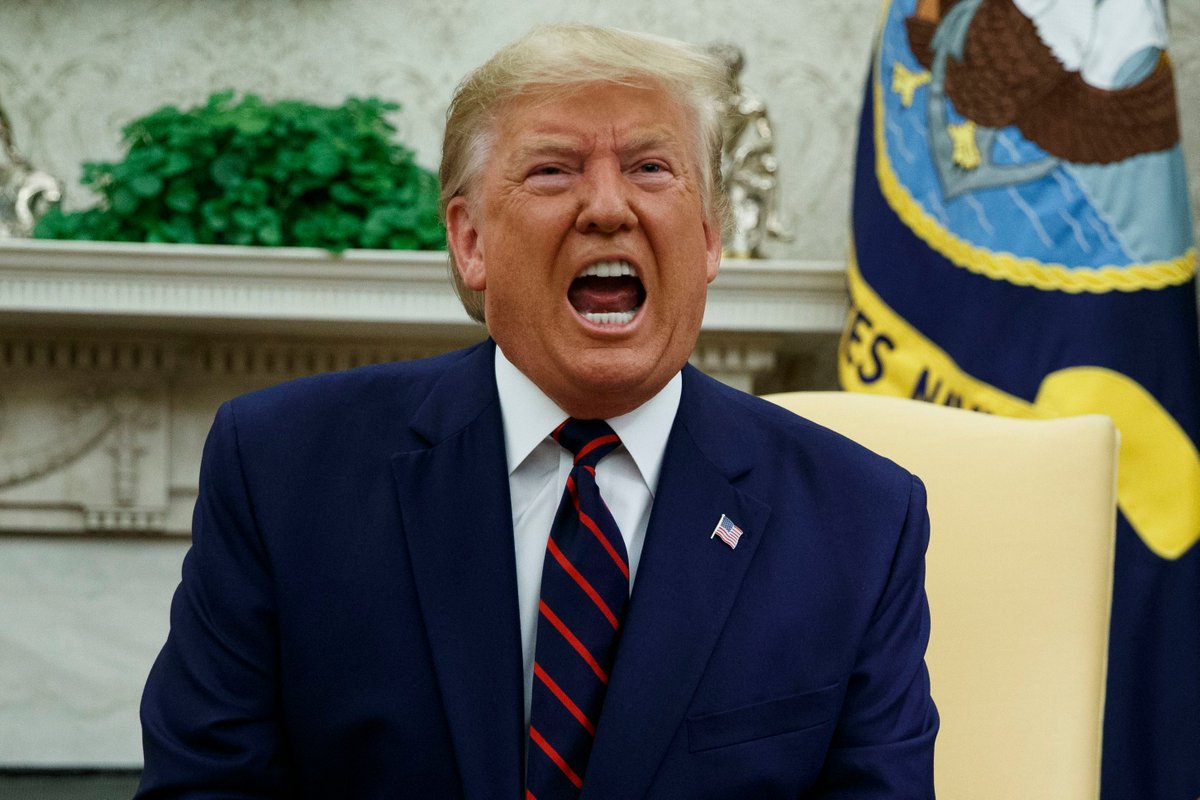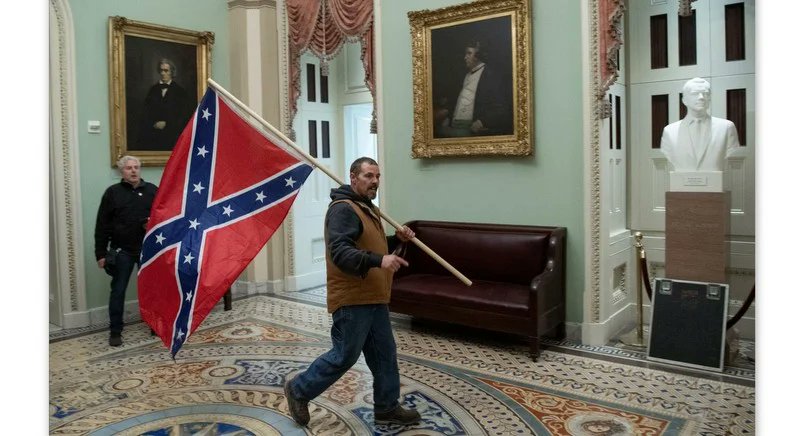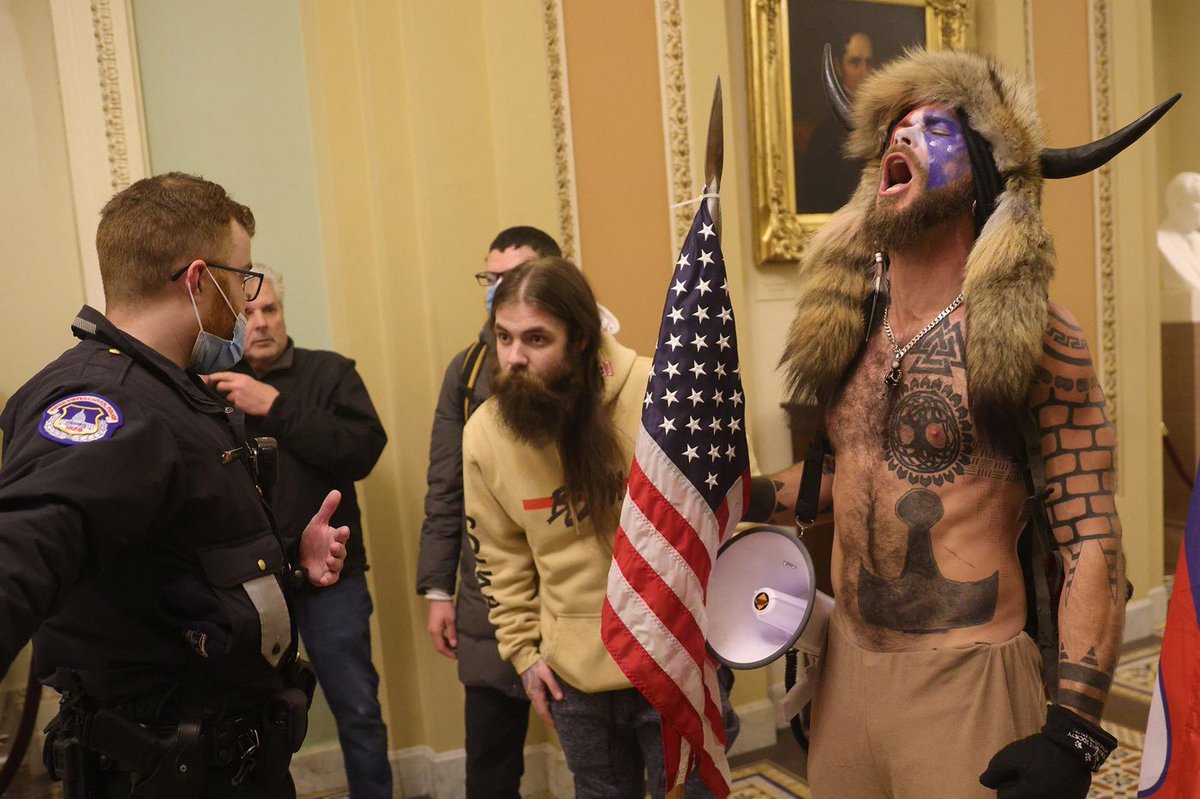So here’s the deal. In the aftermath of Wednesday’s coup, many have been looking to history to find examples of what we can expect now. This is in many ways good (at last), but I just worry we might draw the wrong conclusions. A thread. 1/
The obvious example that people have grasped for is, of course, Germany. These come in two major flavours. Some wanted to ask if the blueprint of dealing with these past four years could be Germany’s post-war denazification… https://twitter.com/albinokid/status/1346924228306735118?s=20 2/
…while others saw a direct equivalent to the Beer Hall Putsch of 1923: a stepping stone on the path of Hitler’s rise to power. A decade after this farcical, localised revolt in Munich, Hitler rose to national power. The rest, as they say, is history. https://twitter.com/joelockhart/status/1345750337399959555?s=20 3a/
(Just today, Arnold @Schwarzenegger has compared Wednesday to Kristallnacht. His video message is actually well worth watching here, also because of his personal message that comes with it. https://twitter.com/Schwarzenegger/status/1348249481284874240?s=20) 3b/
I’ve said time and again that I’m uncomfortable with the direct comparisons often drawn between Trump and Hitler and Trump’s US and Hitler’s Germany (and sorry to my longtime followers who’ve heard this over and over again). And look, I understand why some want to do this. 4/
But here, for instance, is my criticism of a well-received academic work that effectively tried to make those equivalences. My point stands: we need to deal with the problem on its own terms. If we don’t, then we stand to miss the real warning signs. 5/
That’s not to say that we shouldn’t look to history for lessons (that’d be REALLY dumb and stupid), and I love that these questions are being asked. But the United States in 2021 is not the fledgling Weimar Republic in 1923, or the occupied shell of the Reich in 1945. 6/
Both of these points, in fact, show us that America starts at points that would *seem* to suggest that it is at an advantage. There has been no cataclysm of a world war. There are no smoking ruins. Poverty is rampant, yes, but the US is hardly going through the Turnip Winter. 7/
But in actual fact that might be a *disadvantage.* Let’s use the postwar German situation as an example: Germany was defeated in a war that united the world against it, there were trials, the Nazis were weeded out, and Germany reemerged into the community of democracies. 8/
Sorry, but it’s all crap. Denazification was uneven (of course it was — there were ultimately two Germanies!) and in many cases window-dressing. Even the Nuremberg Trials were shambolic — and how could they not be, given that the Soviet representative was Andrey Vyshinsky. 9/
(nb: Vyshinsky was the procurator general during the Stalinist Great Purges in the 1930s, and the architect of the show trials that led to the mass executions of the CPSU political caste. His involvement in a quest for justice should tell you A LOT about that process…) 10/
I can’t dive deeply into the Nuremberg Trials here, but suffice it to say, the removal of Nazism from Germany was never going to succeed for a couple of reasons: first, because it went too deep; second, because there was not actually a will to do so. 11/
Having been in power since 1933, and having fundamentally Nazified the German state apparatus, the NSDAP had ensured that the German state was intrinsically Nazi, and had to be dismantled totally. 12a/
(My friend Dr. @KylieGalbraith explains this in great depth in her new book. https://www.bloomsbury.com/au/the-british-press-and-nazi-germany-9781350102101/) 12b/
This led to a major issue once the Allies worked out how the Germans would take the reins of their state: those with experience in statecraft were tainted with Nazism in one way or another. Simply put: you couldn’t weed out the Nazis because then who would run the place? 13/
A further complication in the West was that the occupying powers (chiefly the US and Britain) had shifted focus immediately after the war — not to “how do we destroy fascism?” but “how do we oppose communism?”, and in this they saw their former ally the USSR as the bogeyman. 14/
Thus, in West Germany, a perceived need arose to cement into power those who were committed anti-communists. And, in spite of what some bad faith commentators today would have you believe, Nazis were *devoutly* and *fanatically* anti-communist. 15/
These weren’t minor figures either. Kurt-Georg Kiesinger, who would become Chancellor of West Germany in 1966, was once publicly attacked by the Nazi-hunter Beate Klarsfeld (as well as the authors Heinrich Böll and Günter Grass), who pointed to his membership of the NSDAP. 16/
Reinhard Gehlen, who had been a colonel in the Wehrmacht on the Eastern Front, formed the Gehlen Organisation after the war, sponsored by the CIA, which he eventually reformed into West Germany’s Federal Intelligence Service (Bundesnachrichtendienst; BND). 17/
Not only this, but antifascists were often tarred as being unpatriotic. Willy Brandt, the Social Democrat who would become Chancellor, was mercilessly attacked by the Passau media magnate Hans Kapfinger, since he had fled to Norway and had resisted the Nazi invasion in 1940. 18/
The idea that Brandt *may have* played a role against Wehrmacht troops made Brandt, in the eyes of the American-backed arch-conservative Kapfinger and his Passauer Neue Presse, a traitor, and he was referred to by his birth name (Herbert Frahm) rather than his nom-de-guerre. 19/
In the East, where the denazification process was generally more energetic, old Nazis still popped up. Friedrich Paulus, who had led the Wehrmacht at Stalingrad in 1943, denounced the NSDAP and eventually became the head of the Military History Research Institute in Dresden. 20/
Other aspects of Germany remained mired in Nazi-era shadows. Much praise is given to the West’s Basic Law, or Grundgesetz, written at Herrenchiemsee in 1949. But the German Criminal Code (StGB) kept the Nazi-era wording of §175, which illegalised male-male sexual relations. 21/
§175 was modified a number of times after 1949, but was only removed from the StGB without replacement as late as 1994. In spite of its Nazi tones, it still fell into line with the desires of an emboldened conservative, anti-communist, Allies-driven status quo in the West. 22/
Nor were “active” (neo-)Nazis sidelined by the end of the Third Reich. Germany, like Italy, also had its own underground of ultra-right terrorists, partially armed by the Western Allies following the war, who undertook acts of terrorism and violence. 23/
The most notable of the pre-Reunification actions happened on 26 September 1980, when a bomb went off at the Oktoberfest in Munich, killing 13 and injuring 213. The attacker, Gundolf Köhler, was a member of the neo-Nazi group Wehrsportgruppe Hoffmann. However… 24/
…it was never determined whether or not Köhler had accomplices, because the Bavarian State Prosecutor’s Office declared it wasn't a political crime, and destroyed the evidence after closing the case, fuelling suspicion that officialdom covered up for far right militants. 25/
All this history taints the perceived image of West Germany emerging from the ruins of war as virtuous, atoning for its historic crimes. Nor was this unknown at the time. As noted: Böll, Grass, and Klarsfeld knew VERY WELL that Kiesinger had been a member of the NSDAP. 26/
(The fact that he likely used his position to dodge military service did him no favours either.) When this *really* began to matter was in the late 60s, as the first generation of children who had grown up not under the Nazis but under the Federal Republic came of age. 27/
For these children—now quite often university students—the idea of “pragmatism” or “anti-communism” was a pale excuse for allowing “Generation Auschwitz” (that is, the generation that perpetrated the Holocaust or at least facilitated it) to remain at the helm of the state. 28/
The conservatism of the state convinced students that the “new” Germany was really the old Third Reich with a friendlier smile and a nicer hat. When the repressive Shah of Iran (who also was in the pay of the CIA) visited West Germany in 1967, mass student protests resulted. 29/
At one of these, in West Berlin, a student named Benno Ohnesorg was shot and killed by the policeman Karl-Heinz Kurras. Ohnesorg died before he reached hospital. Kurras was tried and, despite clear evidence demonstrating premeditation, he was cleared because of self-defence. 30/
This sparked massive anger against a state which, it was felt, had not only not learned the lessons of Nazism, but still practiced it. “This is the generation of Auschwitz”, declared the activist Gudrun Ensslin. “You can’t talk with them. Where do we get our guns?” 31/
Ensslin might be familiar because she began an affair with the activist Andreas Baader. Together, they (and others) formed the Red Army Faction (RAF), or Baader-Meinhof Gang. The journalist Ulrike Meinhof declared that the state had undertaken “open terror.” 32/
She, too, fell in with Baader, Ensslin and co. Starting in 1968, the RAF began a campaign of terror against the state, which would ultimately culminate in the infamous German Autumn of 1977. The crowning event of this was the kidnapping and murder of Hanns-Martin Schleyer. 33/
Schleyer was the head of the German Employers’ Association. Not coincidentally, he had also been an SS officer during the war — a symbol, so the RAF believed, of the continued pervasiveness of Nazis within the state. 35/
It’s also important to remember that the RAF remained broadly popular throughout much of its campaign. Here: “around a quarter of young West Germans expressed some sympathy for the group [and] understood their disgust with the new order.” https://www.bbc.com/news/world-europe-35354812 34/
So what am I trying to say in this far-too-long thread? My first point is to say that Germany is not the United States, and 2021 is not 1945 or 1923 or 1968 or 1977. And, while I appreciate Arnie’s stirring video, Wednesday was not an American Kristallnacht. 35/
BUT. There are some lessons here. After the war, Nazism had been entirely discredited. Germany was in ruins. The war was lost. The country was occupied, divided, torn apart. AND EVEN THEN, Nazism remained pervasive. 36/
In 1951, for instance, a third of the town of Landsberg even protested in solidarity with convicted war criminals. https://www.dw.com/en/germany-1951-solidarity-with-nazi-mass-murderers/a-56142745 37/
Never mind that most Nazi criminals actually escaped with a slap on the wrist. Some even went on to bigger and better things (like, I dunno, Wernher von Braun, launching rockets to the moon, only this time without slave labour building them). 38/
Kapfinger, who likely enriched himself during the NS era on appropriated Jewish property, demonised Willy Brandt not for BEING a Nazi, but for resisting Nazis. Today, Passau honours Kapfinger with a Dr.-Hans-Kapfinger-Straße and a student apartment building named after him. 39/
Schleyer's SS history basically evaporated after his murder, and he effectively became a martyr at the hands of the RAF. Go to Stuttgart today, and you can see a concert in the main concert hall: the Hanns-Martin-Schleyer-Halle. 40/
Germany had every reason to rid itself of Nazis and a decisive occasion to do so: their total and utter defeat. But it did not, and that led to the onset of terror, both by neo-Nazis (protected by the state) and by those incensed by the power of the “Generation Auschwitz.” 41/
There was no “healing” here because “healing” was not possible.
Once more, America is not postwar Germany. But, even though America doesn’t have that decisive occasion—Trump lost an election, not a war—nor does it have the postwar excuses. 42/
Once more, America is not postwar Germany. But, even though America doesn’t have that decisive occasion—Trump lost an election, not a war—nor does it have the postwar excuses. 42/
The Trump administration lasted four years, not a generation. His insurrectionists and coup plotters are not NEEDED by anyone but him. 43/
The US cannot draw a line under the events of Wednesday and pretend nothing happened. To do so risks precisely the situation that West Germany faced in the second half of the twentieth century. 44/
Fascists will be emboldened by the lack of consequences of their fascism; antifascists, in turn, will react with increasing force against a far right that has aided and abetted terrorism, and yet has never faced the music. 45/
We’re not talking about minor political disagreements here. We’re talking about major crimes that strike at the very heart of the American state and society. There MUST be consequences, and those consequences MUST be to the fullest extent that they can be enforced. 46/
The problems that brought America to this position will not disappear when Trump isn’t there. Systemic racism, for instance, is not an invention of 2016. But for these even to have any chance of being addressed, the first thing that must be blunted is the fascist threat. 47/
If the United States is to correct or change its course, then it must do so without the Wednesday insurrectionists being safe and secure in their ability to exert power. They must be stripped of that power, decisively. If there’s a lesson here, in my opinion it is this. /fin.
@threadreaderapp unroll, bitte!

 Read on Twitter
Read on Twitter

